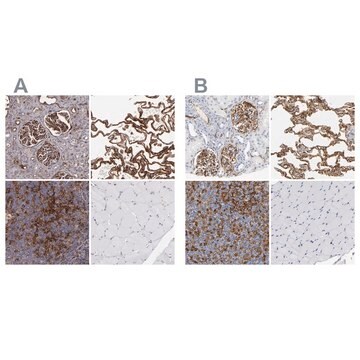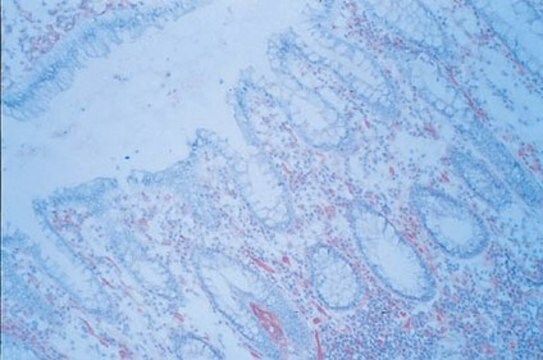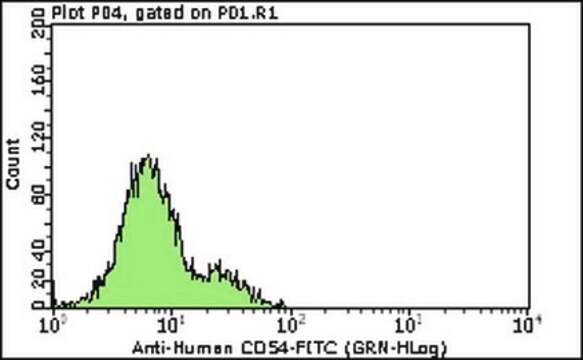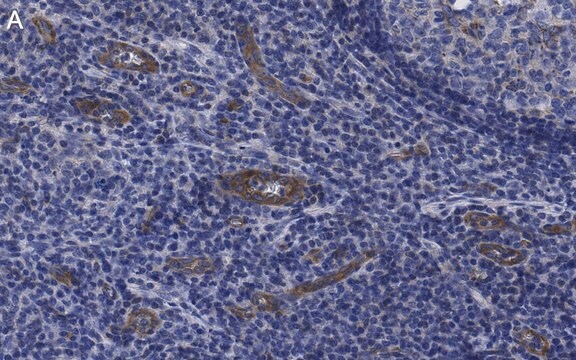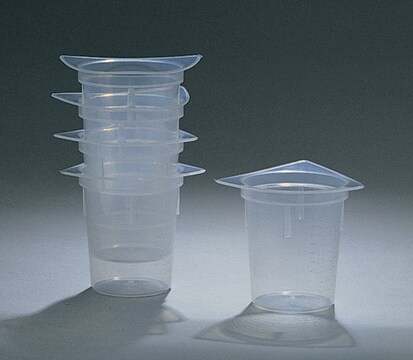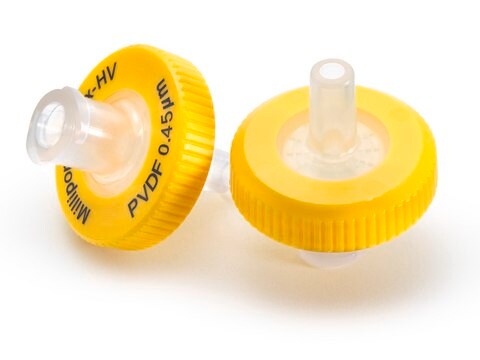MAB1397Z
Anti-ICAM-1 Antibody, clone 3E2B, Azide Free
clone 3E2B, Chemicon®, from hamster(Armenian)
Synonym(s):
CD54, MAB1397
About This Item
Recommended Products
biological source
hamster (Armenian)
Quality Level
antibody form
affinity purified immunoglobulin
antibody product type
primary antibodies
clone
3E2B, monoclonal
species reactivity
mouse
manufacturer/tradename
Chemicon®
technique(s)
ELISA: suitable
flow cytometry: suitable
immunocytochemistry: suitable
immunohistochemistry: suitable
isotype
IgG
NCBI accession no.
UniProt accession no.
shipped in
dry ice
target post-translational modification
unmodified
Gene Information
mouse ... Icam1(15894)
Related Categories
Specificity
Application
ELISA
Immunohistochemistry of acetone fixed frozen sections. (Paraffin not tested).
Flow Cytometry: Suggested working dilution 50 μg/mL. Use 5 mL of this dilution to label 0.5 x 10(e6) cells.
Immunoprecipitation: use protein G or rabbit anti-hamster IgG secondary
Clone 3E2B is reported to be function blocking against murine ICAM-1.
Optimal working dilutions must be determined by end user.
Cell Structure
Adhesion (CAMs)
Linkage
Physical form
Storage and Stability
Legal Information
Disclaimer
Not finding the right product?
Try our Product Selector Tool.
Storage Class Code
12 - Non Combustible Liquids
WGK
WGK 2
Flash Point(F)
Not applicable
Flash Point(C)
Not applicable
Certificates of Analysis (COA)
Search for Certificates of Analysis (COA) by entering the products Lot/Batch Number. Lot and Batch Numbers can be found on a product’s label following the words ‘Lot’ or ‘Batch’.
Already Own This Product?
Find documentation for the products that you have recently purchased in the Document Library.
Our team of scientists has experience in all areas of research including Life Science, Material Science, Chemical Synthesis, Chromatography, Analytical and many others.
Contact Technical Service
